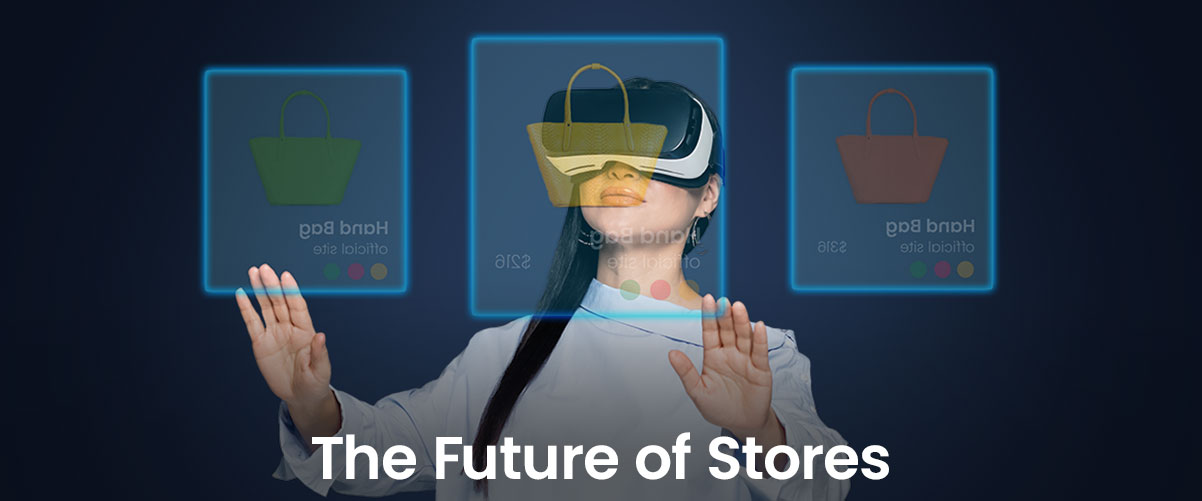Did you know the first product to be barcode scanned was a pack of Wrigley chewing gum at an Ohio supermarket in 1974? Fascinating, isn’t it? This changed the retail game forever. As revolutionary as it sounds, this transformed the way people shop. Barcodes not only help business owners track their stocks but also help in quicker checkout processes for customers.
From the invention of the cash register in 1883 to the digital age of online shopping, we have come a long way. Over the years, technologies have made business owners’ lives easy as well as hugely influenced consumer’s choices and habits. This has only encouraged businesses to keep up with the technologies. The faster the technologies, the more sophisticated the customer’s behavior.
Online shopping has taken the retail world by storm due to the conveniences and tailored shopping experiences, it offers its customers. However, shoppers still like to visit a brick-and-mortar retail store to experience the product or services closely. This has further encouraged retail stores to optimize their in-store customer experiences using smart retail technology such as Artificial Intelligence, Virtual Reality, the Internet of Things, robotics, and other latest technologies. Before diving deep into smart retail technology, let us take you through the basics. What exactly is smart retail technology?
What is smart retail?
A smart retail is nothing but a store that has integrated advanced digital technologies including smart self-checkout systems, smart inventory management, smart carts, and smart mirrors and shelves; into the traditional retail store. This next-generation technology helps deepen the interaction between customers and the shops.
How do smart retail solutions help store owners and shoppers?
- Creates a customer portfolio by capturing visitors’ data more precisely
- Ensures stable income and traffic by bringing back customers with easy-to-navigate and interactive stores
- Enable smooth operations with advanced inventory and client management systems
- Avoids task overload by automating the duties saving a great of shop owners’ time
- Helps businesses stay ahead of their competitors who still using traditional retail ultimately winning the market
Smart retail technologies that will define the store of the future
- Internet of Things (IoT) can collect real-time data which can be used to monitor inventory levels, consumer movement tracking and shopping patterns, etc
- AI & ML can analyze the collected data to customize marketing efforts, enhance inventory management and pricing strategies
- Mobile apps give customers access to offers, discounts, and recommendations
- AR & VR allows immersive shopping experiences for customers
- Beacon technology can be used to send offers & location-based notifications to customers’ smartphones who are in-store
- Big Data Analyticsallows to analyze huge data collected from different sources to make data-driven decisions
- Robotics and automationcan help shelves restock, handle warehouse inventory, and assist customers with basic inquiries
What are some applications of smart retail technology?
Smart mirrors: Acts as navigation, information & advertising board, and advanced fitting space. It can help store visitors try on clothes and accessories and will also allow them to visualize more products, and choose colour variations in different weather settings.
Virtual fitting space: Allows visitors to choose items without leaving the fitting rooms by contacting the consultants through a smart mirror in the fitting room.
Smart shelves: Help staff track the item’s availability, misplacement, and theft attempts. Moreover, it will help customers find the right product size and colour.
Interactive kiosks: Self-service kiosks where customer can order and pay for their product. Other kinds of kiosks are information and interactive kiosks where visitors can find any product or information about the shops and 3D maps of shopping locations.
Real-time inventory: Helps business owner keep track of their stock in real-time and ultimately take control of their stocks. This is a way to enhance customer experience and they hate to see their desired product go out of stock.
Smart carts: A tablet that will convert the cart into a smart cart. These carts can track products bought and tailor offers based on the data. Moreover, they also allow visitors to make payments from the cart without standing in a queue.
What does the future hold?
Retail stores are keen to adopt smart retail solutions and their interest has been increasing rapidly over the last few years. Whether it is to transform their customer shopping experience or to provide a personalized and immersive service, businesses need to keep up with the latest technologies if they want to bridge the gap between online and offline retail.


